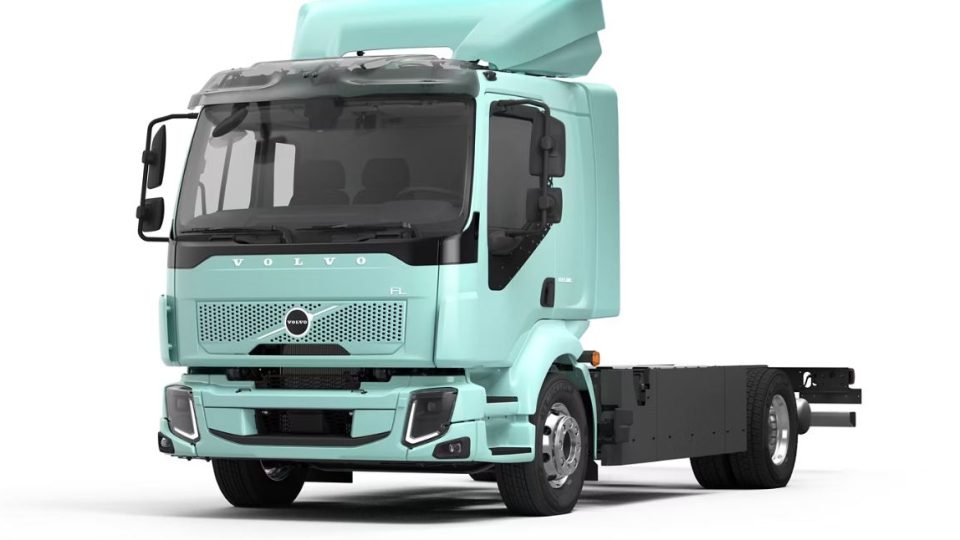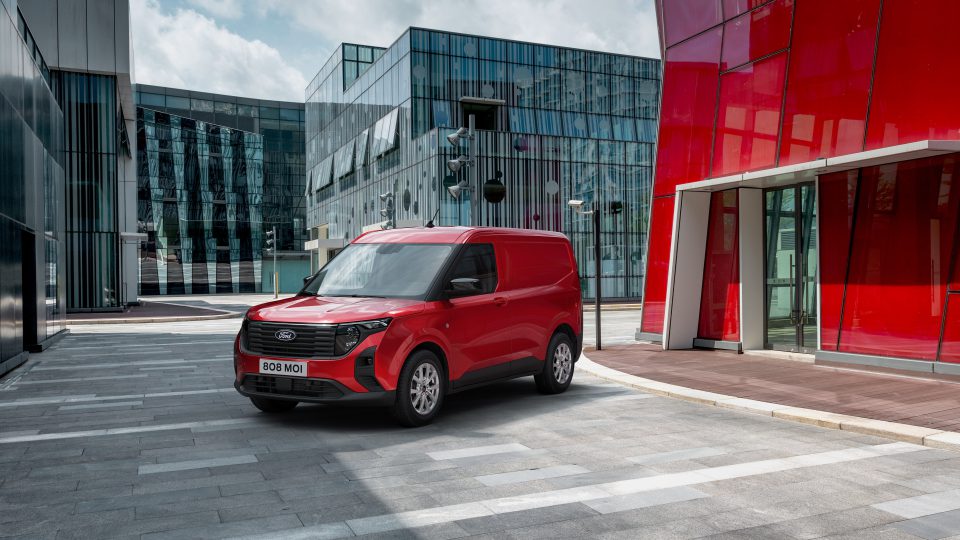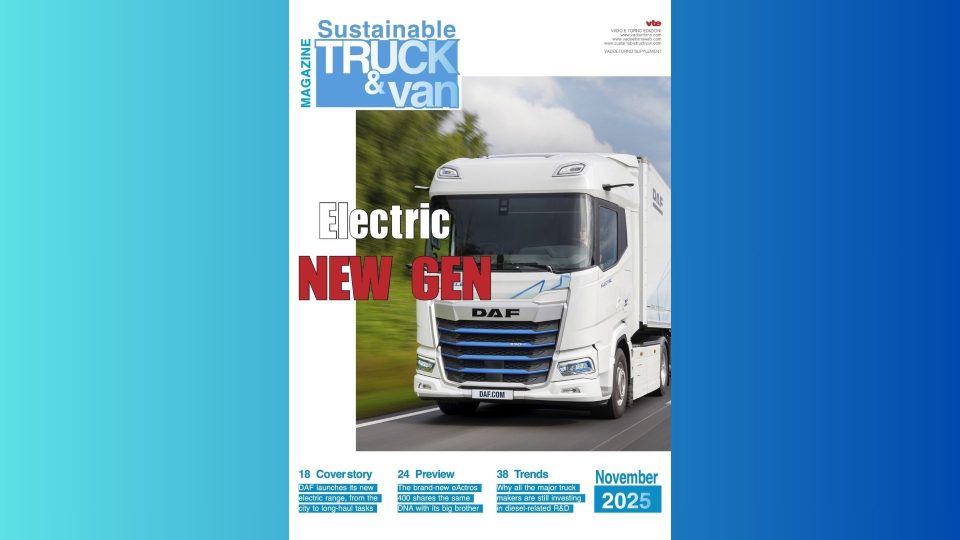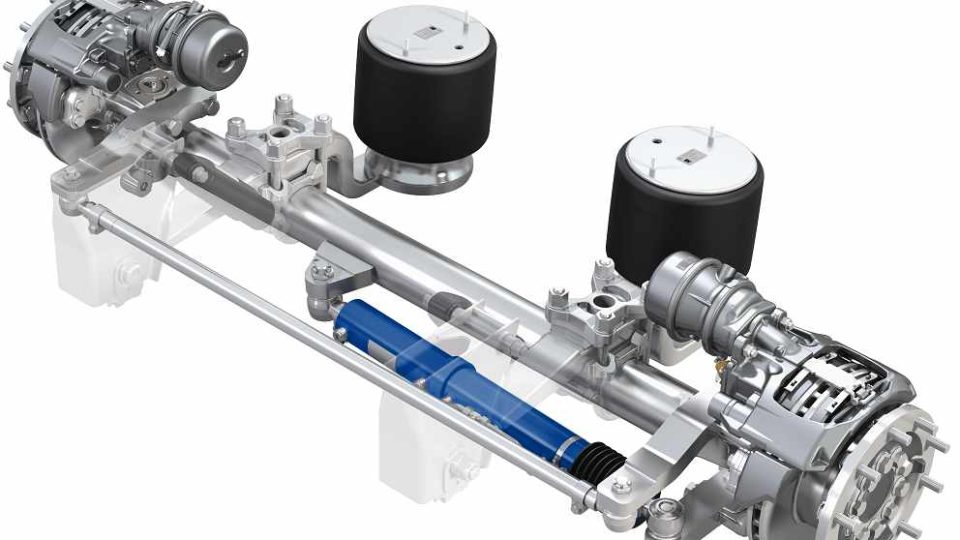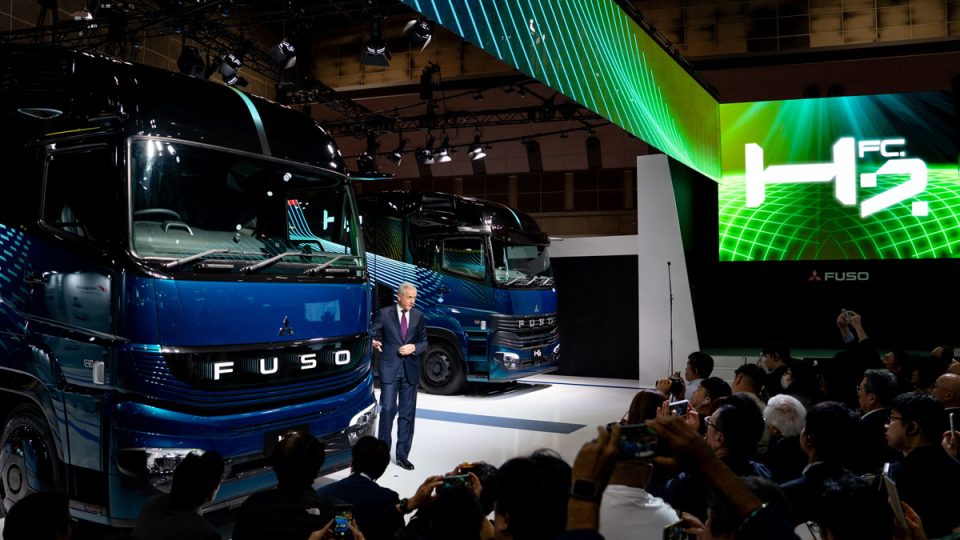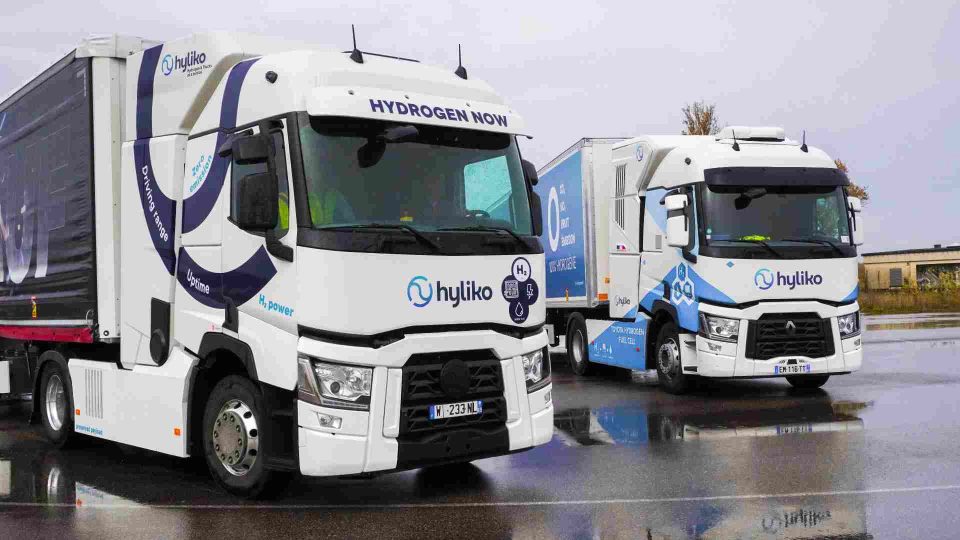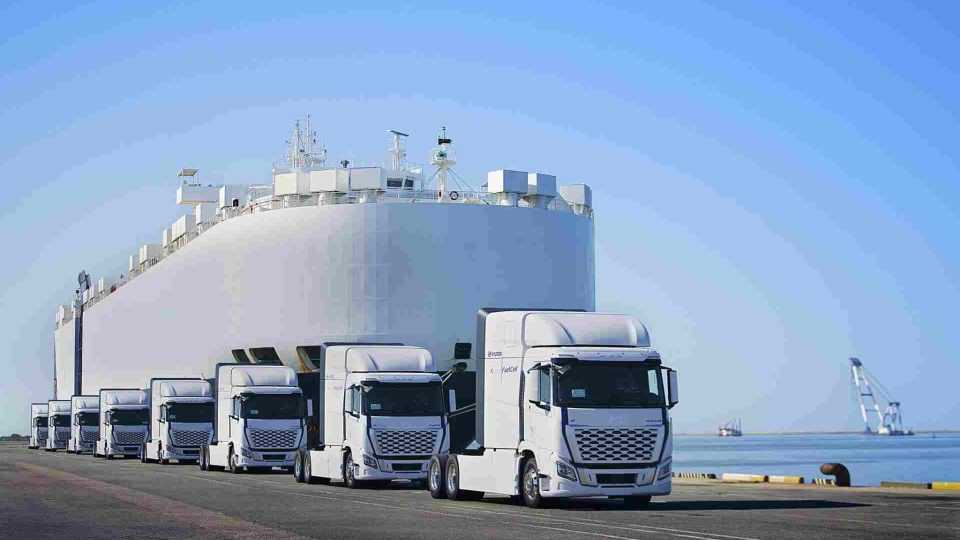Hydrogen is the missing piece in the heavy-duty mobility puzzle. Our chat with KEYOU CEO Thomas Korn
“Especially in heavy-duty vehicles, where robustness and efficiency are key factors, there is something missing in the market. For us, it’s hydrogen combustion engines”, told us KEYOU CEO and founder, Thomas Korn. He also explained the business model of the company, born in 2015, specializing in converting conventional engines and trucks into innovative vehicles with hydrogen-powered ICEs.
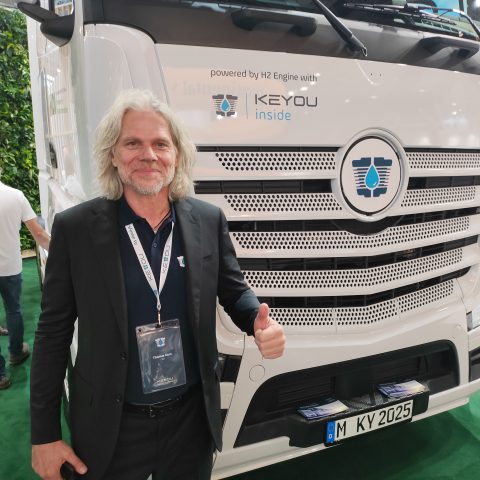
KEYOU was founded in 2015 in Munich. The founders come from the R&D department of BMW, with a focus on alternative propulsion technologies, fuel cells, hydrogen combustion engines, but also batteries. They have a high knowledge of the entire portfolio of alternative traction solutions, in the end. We met CEO and co-founder Thomas Korn, a highly skilled manager who gave us quite clear answers and explanations. “Especially in heavy-duty vehicles, where robustness and efficiency are key factors, there is something missing in the market. For us, it’s hydrogen combustion engines”.
Quite a straight answer, then. Please tell us more about it.
In the mid-2000, hydrogen combustion engines were already an issue in some primary German manufacturers, such as BMW or MAN. Then the financial crisis came and favorable conditions for hydrogen ICEs disappeared. I believe hydrogen is the fuel of the future, and it’s even more important that we can rely on existing and well-known technology such as ICEs. Our mission as KEYOU is to offer hydrogen-based mobility that is competitive with diesel.
So, it’s mostly about heavy-duty vehicles, I guess…
In the end, you can use hydrogen ICEs in every automotive application. The challenges of battery electric heavy-duty vehicles are very high, as we can see in the current market scenario, with the infrastructure as a big challenge. We see hydrogen as the only energy carrier that makes sense for long-haul transportation.
CEO Thomas Korn on the role of KEYOU in the future of transportation
What’s the role of Keyou when it comes to hydrogen-powered trucks?
Our business model is mainly based on two areas. One is expertise, as we have developed seven different hydrogen combustion engines from five different OEMs, with displacements from 7 to 30 liters, for mining machines. Then, our product, KEYOU’s conversion technology from diesel to hydrogen. To be more detailed, the base engine can remain, while the pistons and other key parts change. We provide components like hydrogen fuel injectors, different turbochargers, different ECUs and software, based on our know-how on combustion process control. More or less the same compared to what happens with a diesel engine.
To make a long story short, we can integrate key components in an existing engine and with low efforts we can turn it into a high-performance engine. These components are manufactured by our trusted suppliers, as we’ve been working with them for quite a lot of time.
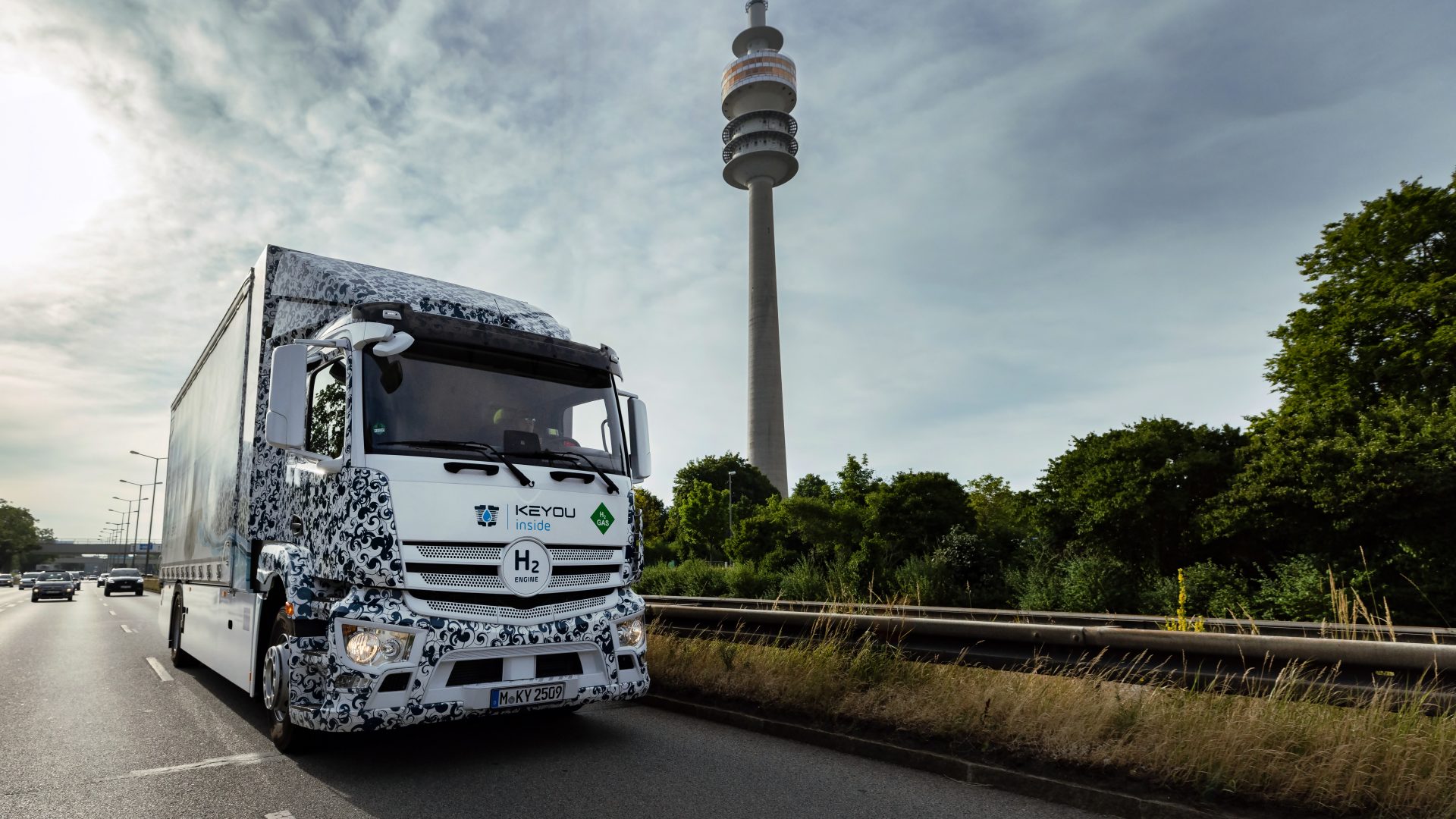
The relationship with truck makers
What kind of partnership does KEYOU have with truck manufacturers?
Given that the vehicles can be used trucks to be converted, or rather new trucks, manufacturers sell us the diesel vehicle, we convert it and that’s the cooperation we’re building. Their core business involves the possibility to manufacture thousands of trucks. In the hydrogen case, this is not possible, so we help them build the boundary conditions even before they actually start producing their hydrogen trucks.
The converted truck is then a KEYOU truck?
Yes. Once the truck is converted, it has our logo. We’re responsible for the changes we’ve made.
Do you have a workshop to convert trucks?
We have a partnership with a truck bodybuilder, and another partner specializing in engine conversion and retrofitting that makes 2,000 engines a year. The new engines are all tested on test benches.
What’s really challenging from an engineering perspective when it comes to converting a diesel engine into a hydrogen-powered one?
It may seem that a combustion engine is made for hydrogen as a fuel, not for diesel. Hydrogen burns very fast, so the energy conversion works very fast. There’s a high power and efficiency potential. The challenge is to control it in a proper way, without compromising the engine lifetime and durability. The hard part is to control the hydrogen combustion process. It’s not easy at all.
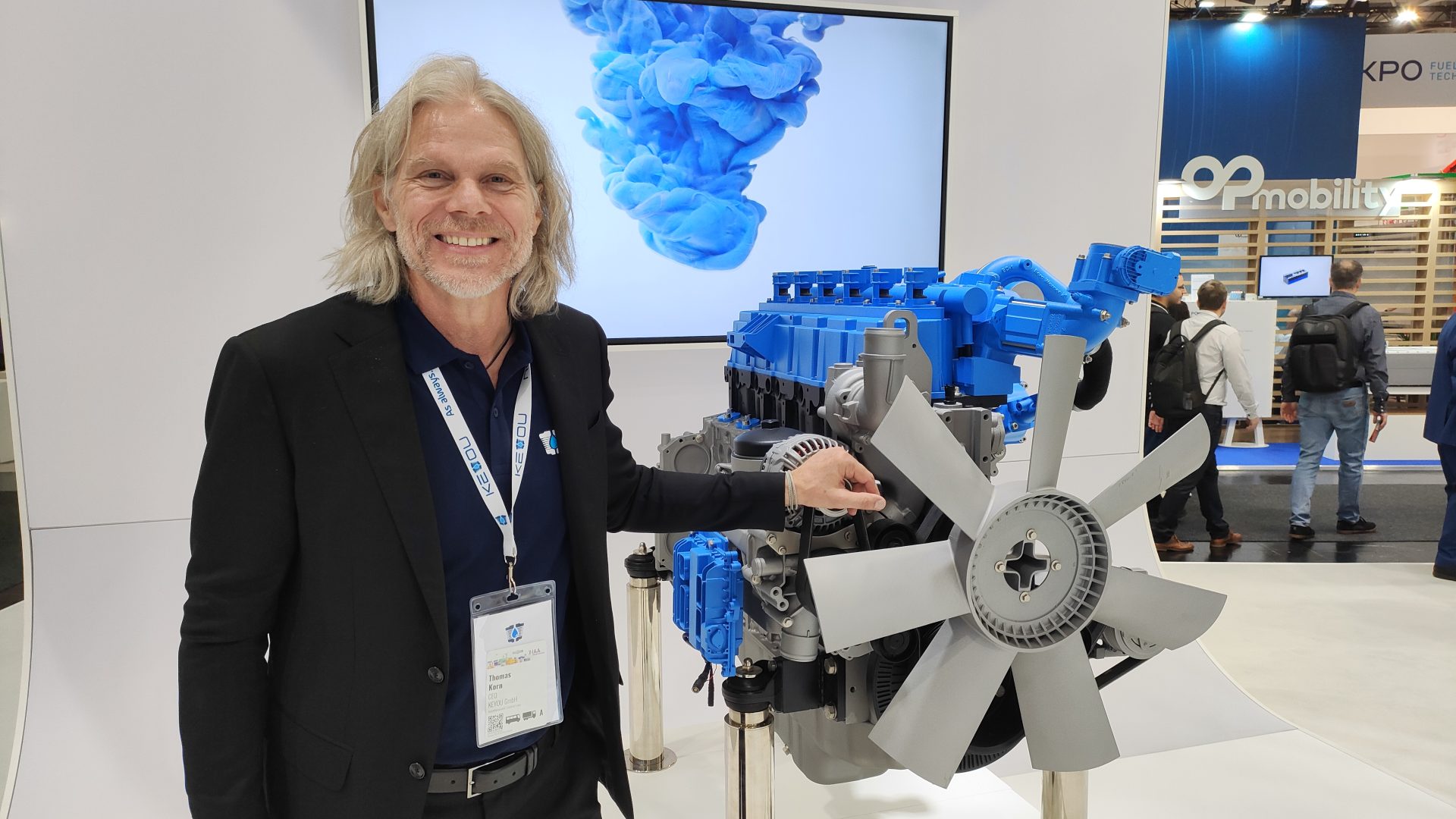
What about the after-sales services?
That’s a very important issue. We have partnerships with truck service companies, which are also interested in exploring the hydrogen field to upgrade their service capabilities. Then, we also need to support our customers on the fuel side, so we have partnerships with fuel providers.
Plans of expansion outside Germany
In which countries do you currently work?
Our focus is Germany, now, although we’re looking to different markets such as the UK or Sweden. Basically, we’ll follow the availability of hydrogen for transportation. Hydrogen production and distribution is crucial for the TCO of these trucks. We want to make this challenging transformation as easy as possible for the operators.
Why hydrogen ICE and not fuel cells in your proposition?
In the old days, we did a lot of research on the advantages and disadvantages of these technologies. Fuel cells have a higher efficiency potential, while hydrogen ICEs are very much industrialized and highly cost-efficient. They are very robust, even though they’re less fuel efficient. Fuel cells are still very expensive, so we believe this is the right time to have hydrogen-powered ICEs. Later, fuel cells may have their role in the market, but now it’s time for hydrogen ICEs.



